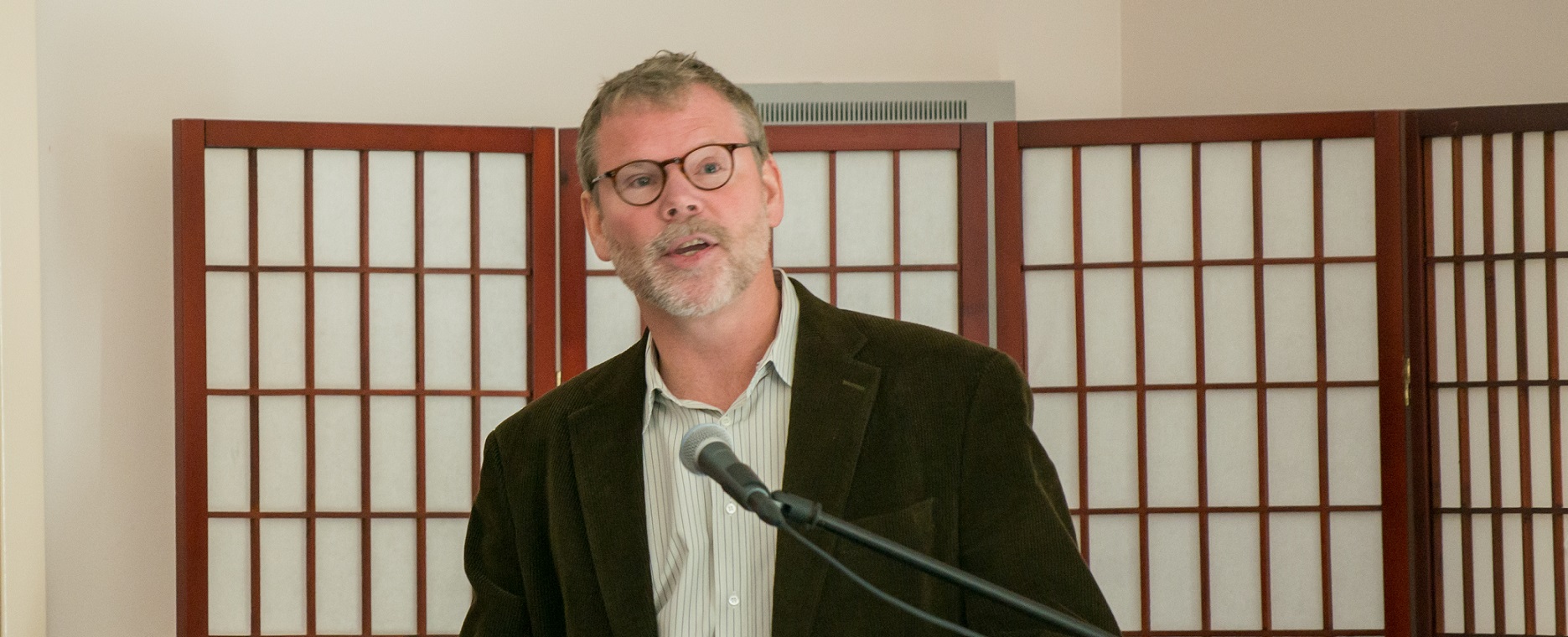Scientists agree the Anthropocene, a new geological epoch defined by humans’ effects on the Earth, is upon us, but when did it begin? The Anthropocene Working Group (AWG) of the International Commission on Stratigraphy is poised to make that call, but Erle Ellis and colleagues argue that voices from highly relevant social science disciplines have been thus far excluded from the conversation.
To date, the AWG has focused primarily on markers in the rock record from the 1950s onward that demonstrate human impact, such as plastics, but “this ignores millennia of previous human influences, from our use of fire to the emergence of agriculture,” writes Ellis, professor of geography and environmental systems at UMBC. Ellis is lead author on a comment published in Nature on December 8 that contends social sciences and humanities researchers should play a prominent role in the formalization of the Anthropocene.
Currently, only three of 37 members of the AWG are social scientists focused on long-term social change. In particular, Ellis voices a need for archaeologists to be involved in the Anthropocene formalization process. “They have always studied the physical evidence of human societal relationships with environmental change,” he says.
Most fundamentally, Ellis argues, it is essential that AWG seek to understand “why humans, and no other species in Earth’s history, have put our planet on a new trajectory,” and including the perspectives of social scientists would “change the evidence base, the scientific methods, and the time-frame within which the Anthropocene would be formalized.”
Ellis is an AWG member and had raised concerns within the group about its biases. He decided to write the Nature comment because “it became clear that more external effort was needed to…bring the social and the natural sciences together as equal partners in understanding what humans are doing to Earth.”
Ellis isn’t surprised that the AWG focuses on 20th-century evidence, which he describes as the “most clear and abundant evidence of human transformation of Earth,” but he also argues more distant and ambiguous information must be examined. “Evidence of anthropogenic global environmental changes deeper in the past are more complex, less abundant, and must be reconstructed with tools and using evidence that are unfamiliar to the Earth sciences,” he says.
Anthropocene science is an emerging, interdisciplinary field, which will be most successful when all voices are at the table, Ellis maintains. Answering the question of when and how humans began transforming Earth might guide us, he suggests, toward “more desirable outcomes both for human societies and for non-human nature.”
The comment in Nature: Involve social scientists in defining the Anthropocene
Image: Erle Ellis speaks at a research symposium at UMBC; photo Marlayna Demond ’11 for UMBC.
Additional news coverage:
Why efforts to define the Anthropocene must be more inclusive and transparent (Future Earth)
Scientists still don’t understand the Anthropocene — and they’re going about it the wrong way (The Conversation)

